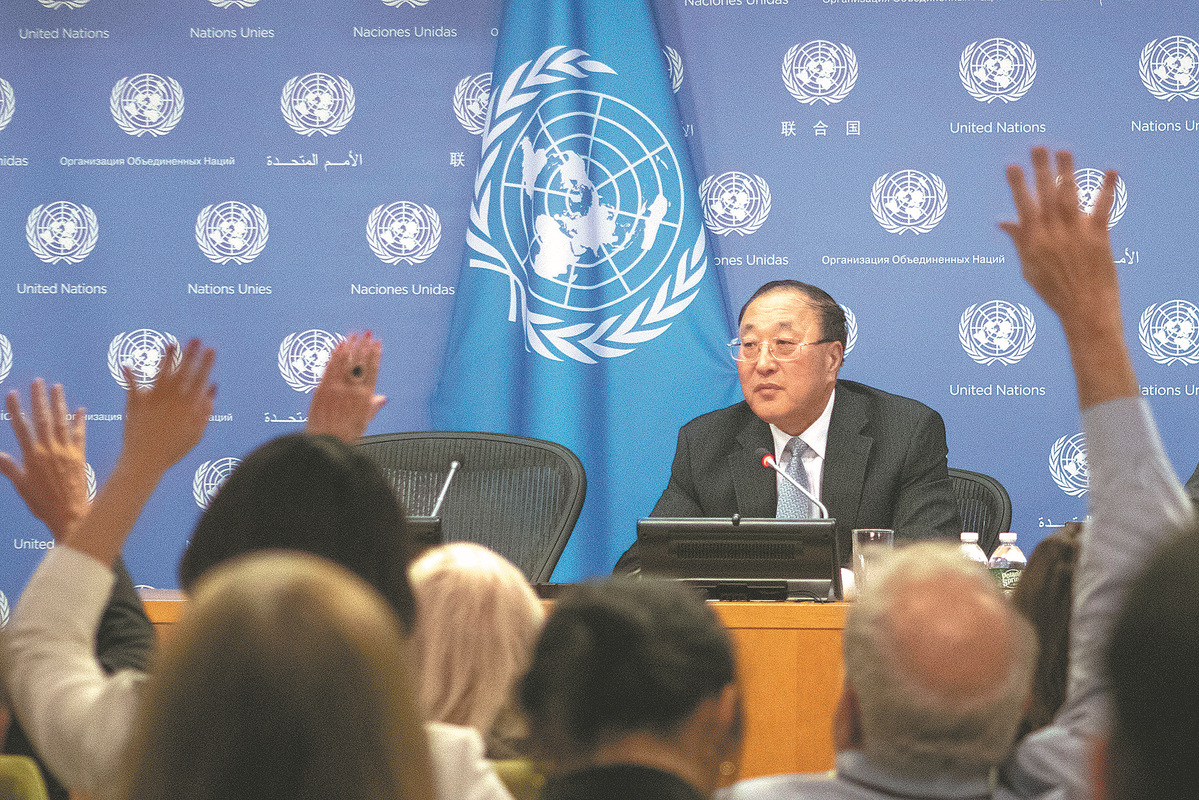China assumed the rotating presidency of the United Nations Security Council for the month of November, with a firm commitment to addressing the ongoing Palestine-Israel conflict. This comes as the Security Council has been under criticism for its perceived slow response to the escalating crisis in the region.
China Assumes UN Security Council Rotating Presidency
The presidency of the UN Security Council rotates among its 15 members on a monthly basis, and it’s China’s turn to take the helm this November. China had last held this rotating presidency in August 2022. This responsibility brings with it a crucial role in shaping the global response to pressing international issues.
Focus on the Ongoing Palestine-Israel Conflict
The situation in Palestine and Israel has taken center stage on the Security Council’s agenda for the month. Zhang Jun, China’s permanent representative to the United Nations, highlighted the urgency of the situation, stating, “It is imperative to push for a cease-fire and halt the fighting, prevent further civilian casualties, prevent a larger-scale humanitarian disaster, and prevent the conflict from spilling over.”
As of Thursday, the Palestinian casualties in the Gaza Strip had tragically surpassed 9,000, according to the Hamas-run Health Ministry in Gaza. Simultaneously, more than 1,400 people in Israel have lost their lives, with most of these casualties resulting from the October 7 Hamas attack, as reported by Israeli authorities. The mounting human toll has intensified the international community’s calls for immediate action to address the crisis.
Pledges of Action and International Diplomacy
As the new rotating president of the Security Council, China is taking on a significant responsibility to respond to these calls for action. Zhang Jun underlined China’s commitment to working with all concerned parties and the international community to promote responsible and meaningful collective action by the council in a timely manner.
China aims to ensure that the Security Council fulfills its responsibilities under the UN Charter, demonstrating its commitment to easing tensions and supporting diplomatic efforts. Zhang Jun also emphasized the need for the council to focus on the root causes of the conflict, exploring comprehensive solutions that address both the development deficit and the security deficit.
“We will also push the Security Council to improve its working methods, strengthen unity and cooperation, enhance its authority and efficiency, and respond more effectively to the current complex situation,” Zhang added.
Beyond the Palestine-Israel conflict, Zhang mentioned that the Security Council will also consider pressing issues related to Syria, Yemen, and Bosnia-Herzegovina during November. Additionally, it will take action on matters such as the UN assistance mission in Sudan, the UN mission in the Central African Republic, and the extension of sanctions on Somalia. The council will also conduct its annual regular dialogue with the commissioner of UN peacekeeping police.
China’s commitment to global peace and international order was reinforced by Foreign Ministry spokesman Wang Wenbin, who stated that China remains a builder of world peace, a contributor to global development, and a defender of the international order based on the UN Charter and international law.
The assumption of the rotating presidency by China comes as a beacon of hope in addressing the escalating crisis in Palestine and Israel and responding to other pressing international issues. The world is watching to see how China, as the council’s leader this month, will contribute to finding solutions and promoting peace.















